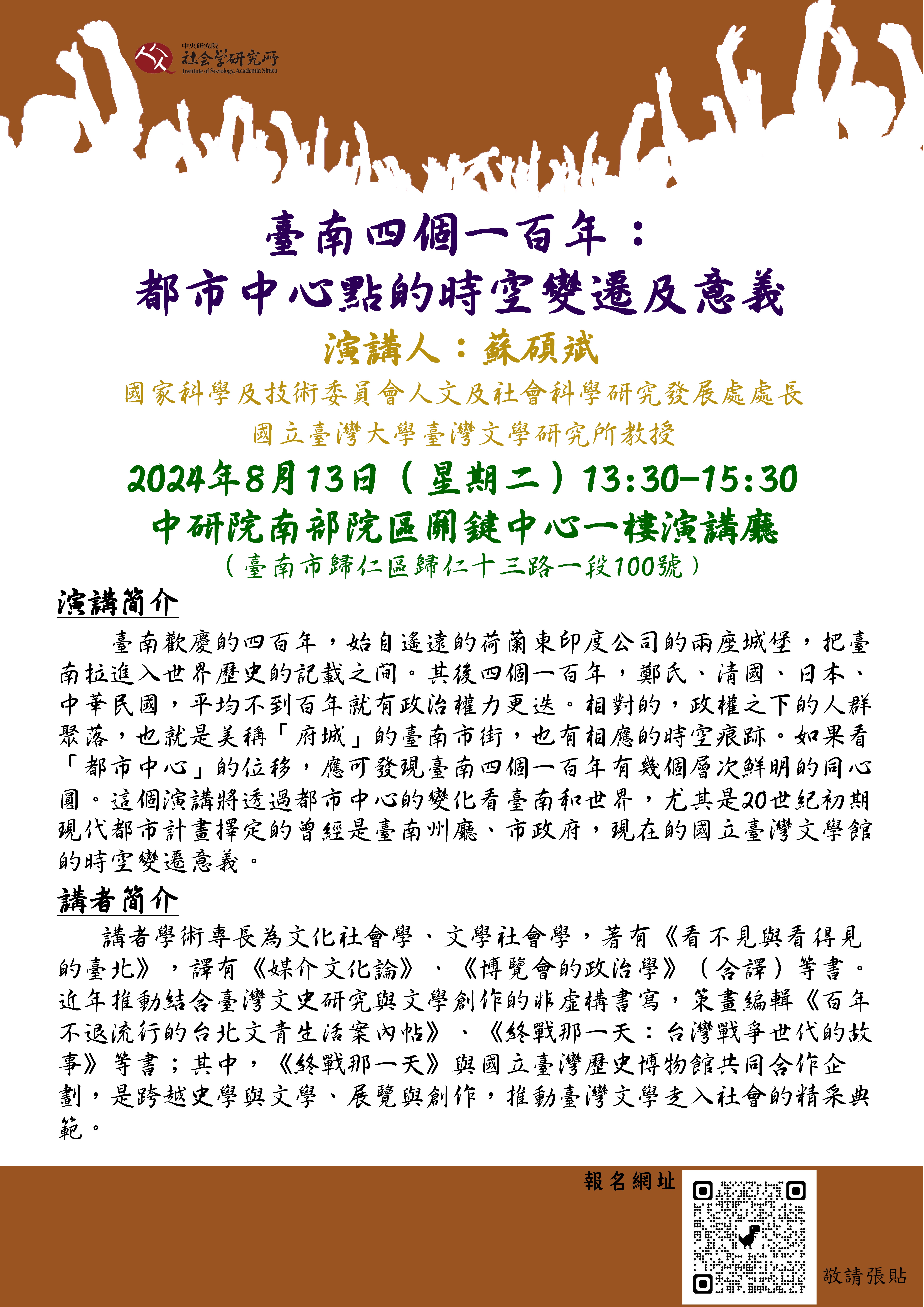- Lectures
- Institute of Sociology
- Location
No.100, Sec.1, Guiren 13th Rd., Guiren Dist., Tainan City 711, Taiwan (Research Center for Critical Issues on Academia Sinica South Campus; first floor, conference hall)
- Speaker Name
Shuo-bin Su (Director General, Department of Humanities and Social Sciences, National Science and Technology Council, National Science and Technology Council; Professor, Graduate Institute of Taiwan Literature, National Taiwan University)
- State
Definitive
- Url
Brief:
Tainan celebrates its 400-year history, which began with the two fortresses of the Dutch East India Company (VOC), bringing Tainan into the annals of world history. Over the following four centuries, political powers changed hands every century or so, from the Zheng regime to Qing rule, then Japanese colonial rule, and finally the Republic of China. Correspondingly, the settlements and communities under these regimes, notably the city of Tainan, often referred to as the "府城," also bear the temporal and spatial imprints of these transitions. By examining the shifts in the "urban center," we can identify several distinct concentric circles representing Tainan's four centuries. This lecture will explore the relationship between Tainan and the world through the changes in its urban center, focusing particularly on the early 20th century modern urban planning that established the Tainan Prefecture Government building and City Hall, which is now the National Museum of Taiwan Literature, and its significance in terms of temporal and spatial transformation.
Speaker:
The speaker is the Director of the Department of Humanities and Social Sciences at the National Science and Technology Council and a professor at the Graduate Institute of Taiwan Literature, National Taiwan University. His academic specialties include cultural sociology and the sociology of literature. He is the author of "Invisible and Visible Taipei" and has translated works such as "Media Culture" and "The Politics of Exhibitions" (co-translation). In recent years, he has been promoting non-fiction writing that combines Taiwan historical research with literary creation. He has planned and edited books such as "A Century of Timeless Taipei Youth Culture Guide" and "The Day the War Ended: Stories of Taiwan's War Generation." Among these, "The Day the War Ended" is a collaborative project with the National Museum of Taiwan History, exemplifying a brilliant integration of history and literature, exhibition and creation, advancing Taiwan literature into the broader society.
Note:
Online participation is available. The link to the online conference room would be sent via email before the event.









 Home
Home

